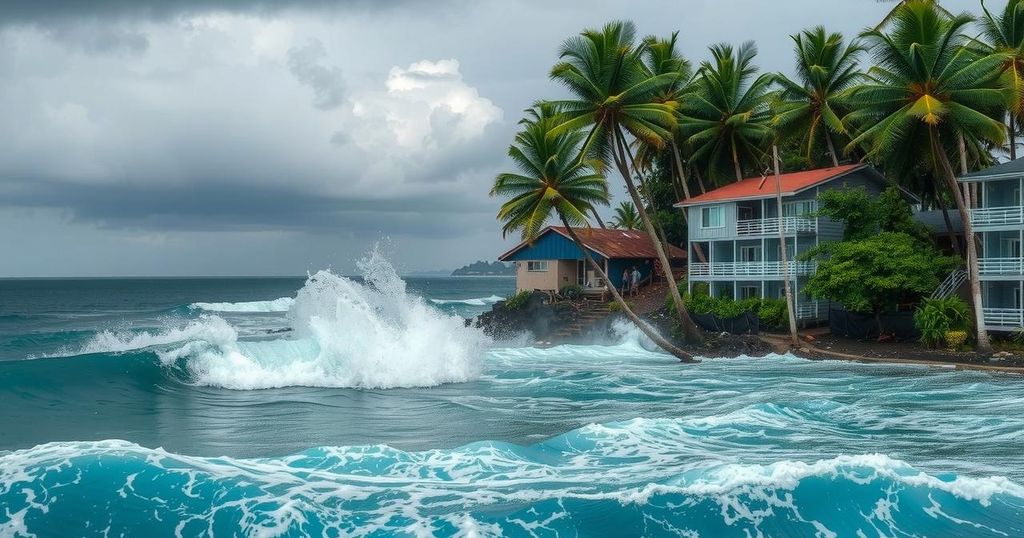Tropical Cyclone Chido has devastated Mayotte, leading to fears of hundreds of deaths and widespread destruction. Initial reports confirm at least 20 fatalities, but estimates suggest the toll may rise significantly. The cyclone’s intensity, fueled by warm ocean waters, achieved near-Category 5 status, impacting critical infrastructure within densely populated, impoverished neighborhoods.
The recent devastation brought by Tropical Cyclone Chido in the French territory of Mayotte has resulted in substantial destruction and loss of life. The cyclone, which made landfall with sustained winds exceeding 155 mph, is noted as the most intense storm recorded to hit the region. Initial reports estimated at least 20 confirmed fatalities, although local officials caution that the death toll could rise dramatically, with some predicting it may reach up to a thousand. The storm significantly impacted critical infrastructure, including hospitals and airports, complicating the delivery of aid and medical assistance to affected residents.
The cyclone’s trajectory and power were exacerbated by abnormally warm ocean waters, which allowed it to intensify rather than weaken upon reaching Mayotte. The densely populated areas, particularly in impoverished neighborhoods, suffered disproportionately; many houses were destroyed, exacerbating an already dire humanitarian situation.
French officials, including Prime Minister François Bayrou and Interior Minister Bruno Retailleau, have acknowledged the severity of the cyclone’s impact, emphasizing the emergency response efforts under way. Although there are logistical challenges due to the storm’s damage to key facilities, aid delivery is ongoing via maritime routes as recovery operations begin.
Surveys and reports from local representatives indicate widespread destruction in both formal structures and informal shantytowns, with lacking access to essential services such as electricity, water, and food. Additionally, cultural practices surrounding death in the local Muslim population may complicate casualty counting efforts. As recovery efforts proceed, the full extent of Chido’s devastation is still unfolding, raising concerns regarding food insecurity and the urgent need for humanitarian assistance.
Mayotte, a French overseas department located in the Indian Ocean, has faced challenges related to its socio-economic conditions, being one of the European Union’s poorest territories. Cyclone season in this region extends from November to April, characterized by a frequency of tropical storms and hurricanes. Unlike typical storms that weaken over Madagascar, Chido maintained its strength as it approached Mayotte, emphasizing the region’s vulnerability to climate-influenced weather patterns. The island’s population comprises a significant number of undocumented migrants, many living in crowded slums that are particularly susceptible to severe weather events. The interplay between environmental, socio-economic, and cultural factors highlights the complexities involved in response and recovery efforts following such disasters.
In summary, Tropical Cyclone Chido has wrought catastrophic damage upon Mayotte, with fears of a rising death toll and extensive infrastructure destruction. Efforts to provide and coordinate humanitarian aid face significant challenges due to the cyclone’s aftermath. This incident underscores the urgent need for disaster preparedness and response strategies in vulnerable regions, particularly in the context of increasingly severe weather phenomena linked to climate change.
Original Source: www.spokesman.com






